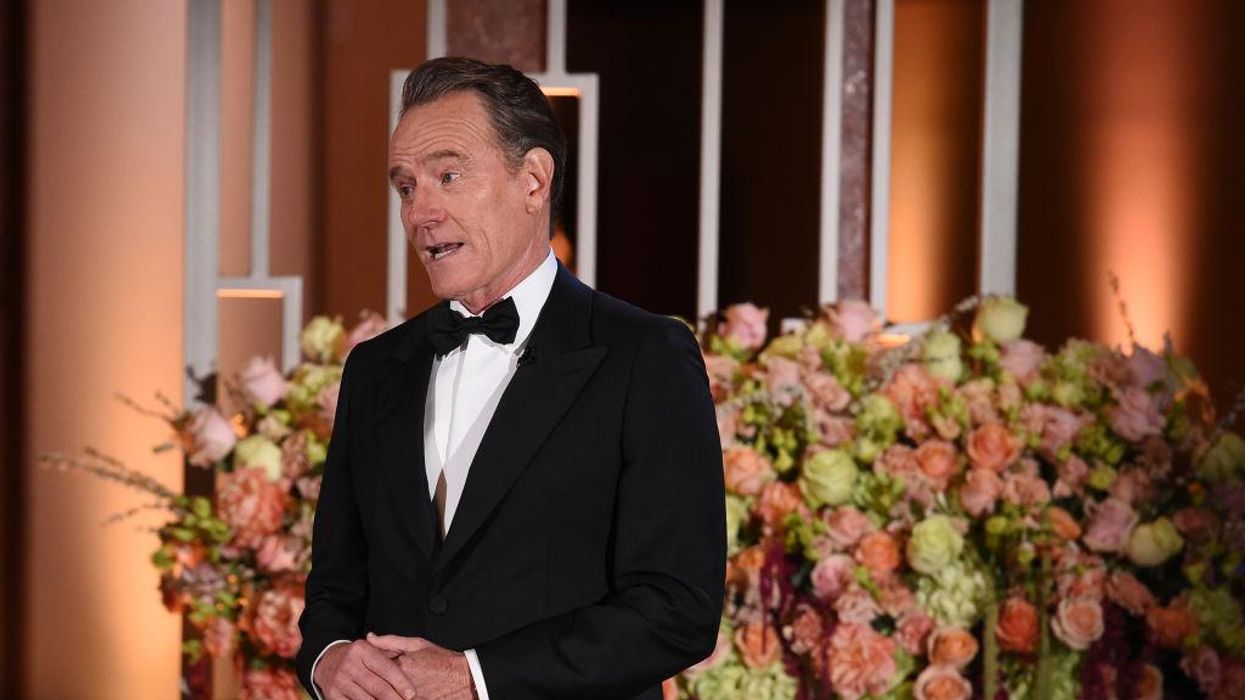
ABC via Getty Images

In a new interview, Bryan Cranston said he was forced to acknowledge his white privilege and "white blindness" following the Black Lives Matter protests in the summer of 2020.
"I’m 65 years old now, and I need to learn, I need to change," Cranston told the Los Angeles Times.
The Hollywood actor revealed that he was tapped to direct a play at the Geffen Playhouse in Los Angeles. The play would be Larry Shue's 1984 comedy "The Foreigner" about an Englishman who learns of a sinister plot by Ku Klux Klan members to convert a rural Georgia fishing lodge into a KKK meeting place, but "things go uproariously awry for the 'bad guys,' and the 'good guys' emerge triumphant."
However, Cranston felt he couldn't tackle that subject matter after the BLM protests in 2020.
"It is a privileged viewpoint to be able to look at the Ku Klux Klan and laugh at them and belittle them for their broken and hateful ideology," Cranston told the L.A. Times in an interview promoting his latest project. "But the Ku Klux Klan and Charlottesville and white supremacists — that’s still happening and it's not funny. It’s not funny to any group that is marginalized by these groups' hatred, and it really taught me something."
Cranston admits that he had been laughing at the comedy for decades. However, the protests and the pandemic caused him to come "face to face with his own 'white blindness' and privilege."
The "Breaking Bad" star said, "And I realized, 'Oh my God, if there’s one, there’s two, and if there’s two, there are 20 blind spots that I have ... what else am I blind to?' If we’re taking up space with a very palatable play from the 1980s where rich old white people can laugh at white supremacists and say, 'Shame on you,' and have a good night in the theater, things need to change, I need to change."
Cranston declined the offer from the playhouse.
"If you find a play that you need an old white guy to act in, then maybe I can be available for that," Cranston told Matt Shakman, Geffen's artistic director.
Shakman approached Cranston with a different opportunity. Cranston agreed to join the production of "Power of Sail" and play the role of Charles Nichols, a "free-speech absolutist" professor who argues, "The answer to hate speech is more speech."
The synopsis of "Power of Sail" from Geffen Playhouse:
Distinguished Harvard professor Charles Nichols (Emmy & Tony Award winner Bryan Cranston) finds himself in hot water after inviting an incendiary white nationalist to speak at his annual symposium. His colleagues are concerned, his students are in revolt, but Charles is undeterred in his plot to expose and academically thrash his invited guest. This profoundly relevant new play by Paul Grellong (The Boys, Manuscript) examines the insidiousness of hate disguised as free speech and the question of who ultimately pays the price.
The Los Angeles Times wrote, "For Cranston, 'Power of Sail' meets that criterion with its pointed critique of America’s devotion to the primacy of free speech."
The play cites philosopher Karl Popper's "paradox of tolerance" from his 1945 book "The Open Society and Its Enemies."
Unlimited tolerance must lead to the disappearance of tolerance. If we extend unlimited tolerance even to those who are intolerant, if we are not prepared to defend a tolerant society against the onslaught of the intolerant, then the tolerant will be destroyed, and tolerance with them. — In this formulation, I do not imply, for instance, that we should always suppress the utterance of intolerant philosophies; as long as we can counter them by rational argument and keep them in check by public opinion, suppression would certainly be unwise. But we should claim the right to suppress them if necessary even by force; for it may easily turn out that they are not prepared to meet us on the level of rational argument, but begin by denouncing all argument; they may forbid their followers to listen to rational argument, because it is deceptive, and teach them to answer arguments by the use of their fists or pistols. We should therefore claim, in the name of tolerance, the right not to tolerate the intolerant. We should claim that any movement preaching intolerance places itself outside the law, and we should consider incitement to intolerance and persecution as criminal, in the same way as we should consider incitement to murder, or to kidnapping, or to the revival of the slave trade, as criminal.
The Los Angeles Times noted that Cranston is "taken with the theory."
Cranston told the newspaper, "There need to be barriers, there need to be guard rails. If someone wants to say the Holocaust was a hoax, which is against history ... to give a person space to amplify that speech is not tolerance. It’s abusive."
At the end of the interview, Cranston said, "Somewhere in this more hardened world — this less civil world that we find ourselves in — someplace, somewhere, lives forgiveness."